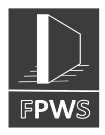Leasehold property owners will likely need a Licence to Alter before undertaking major building works or works that affect the structure of a property. RES Property Surveyors have extensive experience in drafting reports for Licence to Alter documents.
We use a detailed methodology for assessing contractor compliance, costs, impact of works and the impact on surrounding stakeholders. For expert advice and support throughout the alterations process to best protect the interests of all involved, get in touch with the team at RES to discuss your circumstances.
What is a Licence to Alter?
A Licence to Alter is a document which lays out the parameters of a freeholder’s consent to alterations on a leasehold property. Most leases stipulate that a licence for alterations must be obtained before structural work is carried out at the property. This protects the interests of the freeholder, as well as the leaseholder and other stakeholders as official consent ensures the work will not negatively affect the structure or worth of the property.
A Licence to Alter includes such information as a specification of works, work schedules, schedules of condition for adjoining properties and communal areas. In our role as surveyors, the RICS-regulated chartered surveyors at RES carry out inspections of the property, outlining the requirements for schedules of condition, working hour restrictions and the requirements for assessments by an engineer.
Where works impact the footprint of a building a building reinstatement costs assessment may be necessary and where external demises may be impacted by works a schedule of condition may be necessary to allow a record of damage occasioned by the works.
RES Property Surveyors also produce premium calculations where spaces are to be demised and the freeholder wishes to demise such spaces for a consideration. This commonly manifests itself with loft spaces and we have a defined methodology in valuing such spaces and have a niche in this field.
This document ensures that the works are carried out in compliance with health and safety standards and the interests of the freeholder, leaseholder and any other affected parties are considered until the work’s completion.
Do I need a Licence to Alter?
Making alterations to a leasehold property which might affect the structural integrity of the building will often need a licence to alter.
Some common jobs which a leaseholder will need permission of alterations for include:
● Removal of chimney breasts or load bearing walls
● Re-positioning door openings
● External changes such as to windows and window frames
● Altering the footprint of a building, such as by extension
● Changes in floor covering, e.g. from carpet to wood floors
● Adding or changing bathrooms/kitchens
However, to fully understand whether you need a Licence to Alter, an inspection of the property and an assessment of the planned works will need to be carried out by a surveyor. Whether you are a freeholder or a leaseholder, for more information, speak to RES Property Surveyors for more information.
What is a retrospective licence for alterations?
A leaseholder who carries out building work without the approval of the property’s freeholder may experience difficulty in the future when attempting to sell the property or should anything happen to the property as a result. In extreme cases, carrying out unapproved work can result in forfeiture of the lease. For those who have completed structural work, a retrospective licence to alter may be necessary.
Who pays for the Licence to Alter?
The costs for receiving a licence to alter – including the freeholder’s review, the freeholder’s surveyors review and the solicitor’s fees for drawing up the documents – falls to the leaseholder. With decades of experience at local and national levels, the team at RES can advise freeholders and leaseholders on the potential costs of organising the licence to alter.
What happens if the licence is refused?
Under the Landlord and Tenant Acts of 1927 and 1954, a Licence to Alter cannot unreasonably be denied by a freeholder. Following the proper procedure and providing all the necessary information will ensure the licence can be approved unless the work is proven to be detrimental to the interests of the landlord.
By following RICS regulations, the property experts at RES will be able to accurately determine the viability of the work planned and advise freeholders on whether to approve the licence in the interest of their assets.
What can RES Property Surveyors do for you?
RES Property Surveyors have extensive experience in producing Licence to Alter documentation for work of all sizes. Our team of quality property surveyors and valuers use their in-depth knowledge to advise our clients and draft detailed reports for any work that might affect the structure of a building.
Our advanced methodology ensures that you and everyone who may be affected by your works is considered so there is no unnecesary delay to your project.
Get Licence to Alter Advice
To discuss your works with an expert and learn more about how we can support you with a Licence to Alter procedure, contact us today.

